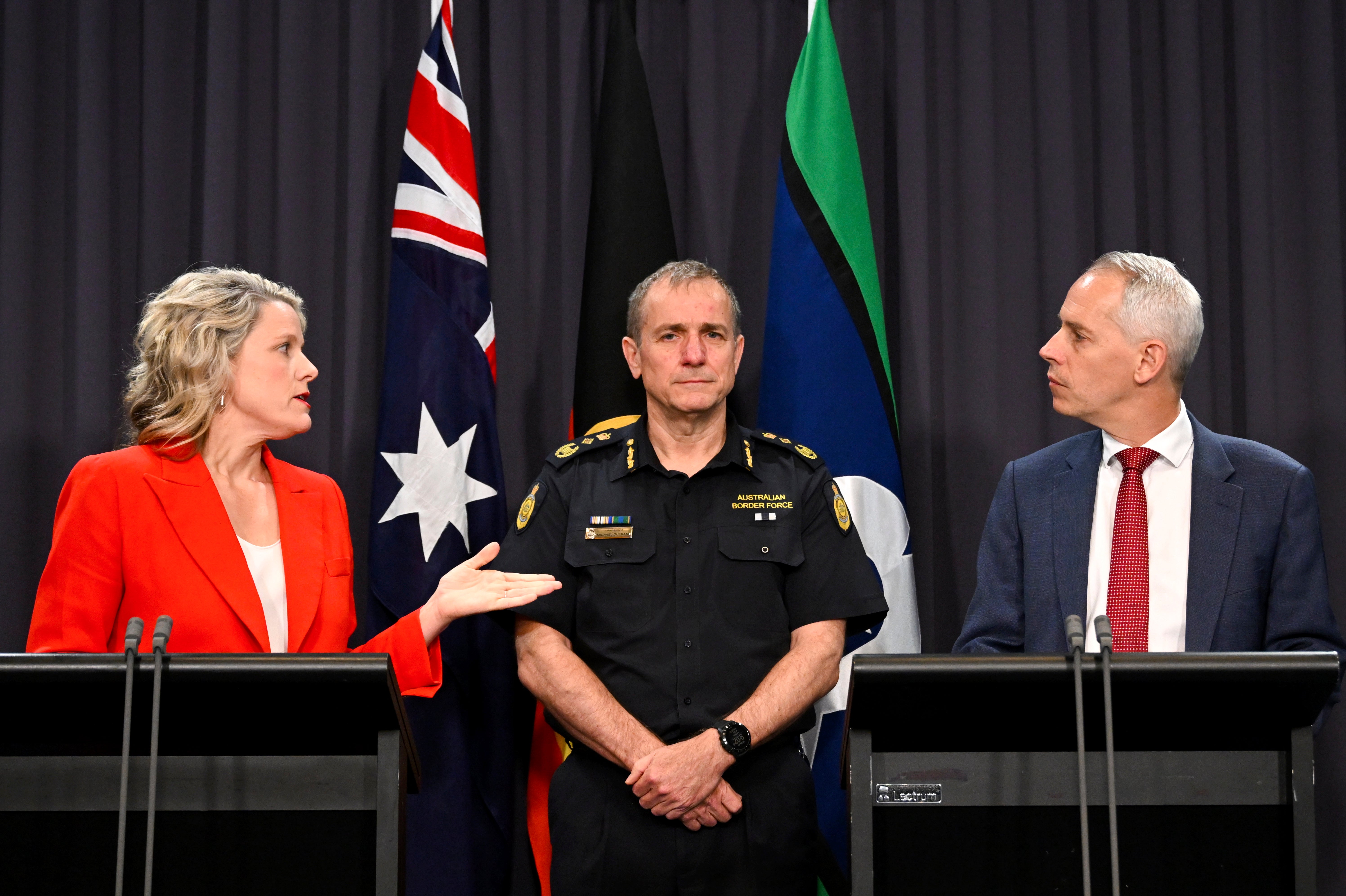Australia proposes new laws to detain potentially dangerous migrants who can't be deported
That Australian government has proposed new laws that would place behind bars some of the 141 migrants who have been set free in the three weeks since the High Court ruled their indefinite detention was unconstitutional

Your support helps us to tell the story
From reproductive rights to climate change to Big Tech, The Independent is on the ground when the story is developing. Whether it's investigating the financials of Elon Musk's pro-Trump PAC or producing our latest documentary, 'The A Word', which shines a light on the American women fighting for reproductive rights, we know how important it is to parse out the facts from the messaging.
At such a critical moment in US history, we need reporters on the ground. Your donation allows us to keep sending journalists to speak to both sides of the story.
The Independent is trusted by Americans across the entire political spectrum. And unlike many other quality news outlets, we choose not to lock Americans out of our reporting and analysis with paywalls. We believe quality journalism should be available to everyone, paid for by those who can afford it.
Your support makes all the difference.That Australian government on Wednesday proposed new laws that would place behind bars some of the 141 migrants who have been set free in the three weeks since the High Court ruled their indefinite detention was unconstitutional.
Home Affairs Minister Clare O’Neil said Parliament would not meet for the year as scheduled next week unless new laws were enacted to allow potentially dangerous migrants to be detained.
“We are moving quickly to implement a preventive detention regime,” O’Neil told Parliament.
In 2021, the High Court upheld a law that can keep extremists in prison for three years after they have served their sentences if they continue to pose a danger.
O’Neil said the government intended to extend the preventative detention concept beyond terrorism to crimes including pedophilia.
“What we will do is build the toughest and most robust regime that we can because our sole focus here is protecting the Australian community,” O’Neil told Australian Broadcasting Corp.
O'Neil said she would prefer that all 141 had remained in prison-like migrant detention. She declined to say how many would be detained again under the proposed laws.
Human rights lawyers argue the government is imposing greater punishment on criminals simply because they are not Australian citizens.
The government decided on the new legislative direction after the High Court on Tuesday released its reasons for its Nov. 8 decision to free a stateless Myanmar Rohingya man who had been convicted of raping a 10-year-old boy.
Government lawyers say the seven judges’ reasons leave open the option for such migrants to remain in detention if they pose a public risk. That decision would be made by a judge rather than a government minister.
The ruling said the government could no longer indefinitely detain foreigners who had been refused Australian visas, but could not be deported to their homelands and no third country would accept them.
The migrants released due to the High Court ruling were mostly people with criminal records. The group also included people who failed visa character tests on other grounds and some who were challenging visa refusals through the courts. Some were refugees.
Most are required to wear electronic ankle bracelets to track their every move and stay home during curfews.
Opposition lawmaker James Paterson gave in-principle support to preventative detention, although he has yet to see the proposed legislation.
“We know there are many people who have committed crimes who’ve been tried of them, who’ve been convicted of them and detained for them, and I believe shouldn’t be in our country and would ordinarily be removed from our country, except that the crimes they’ve committed are so heinous that no other country in the world will take them,” Paterson said.
___
Follow AP’s coverage of global migration at https://apnews.com/hub/migration